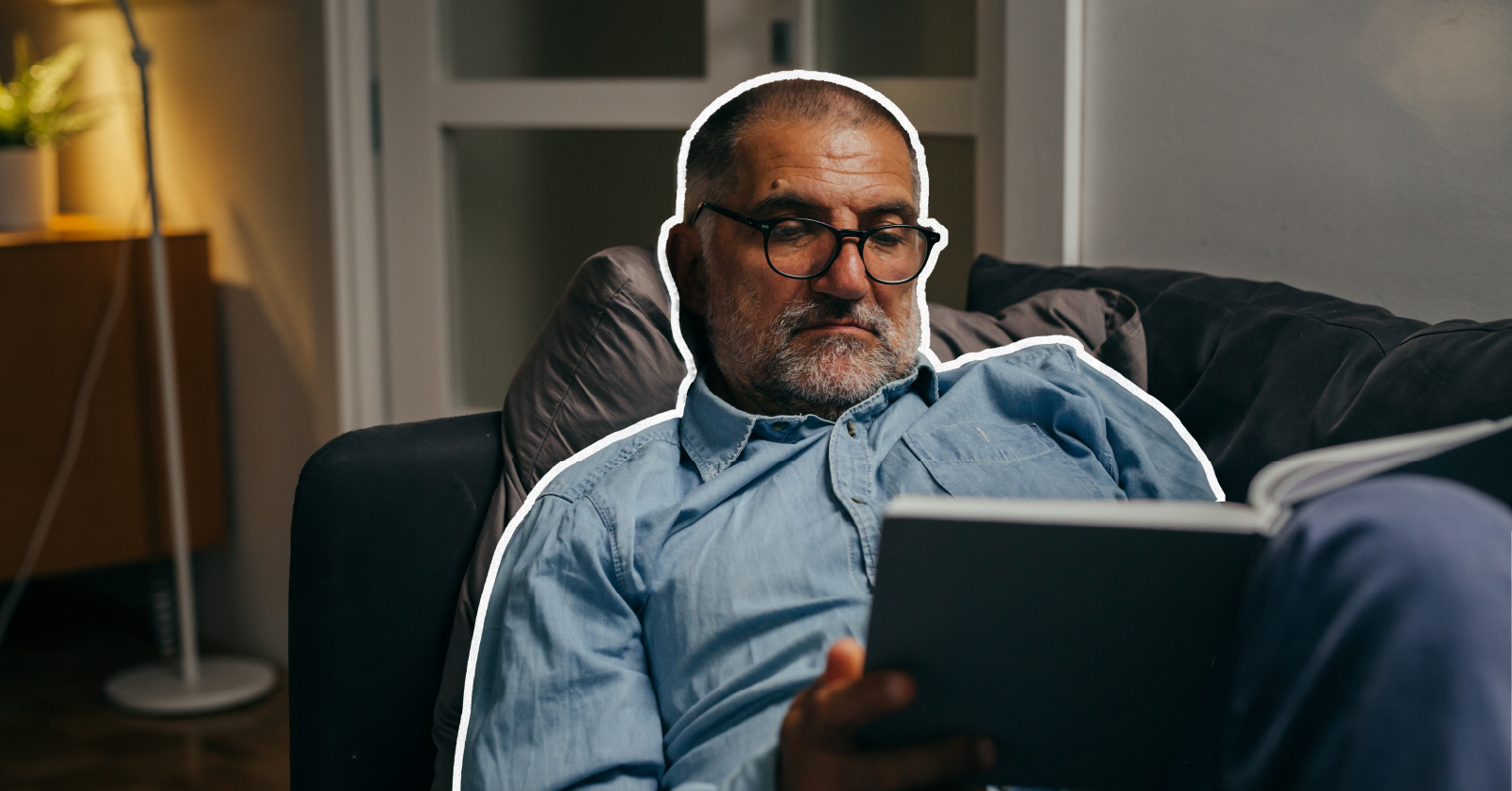WANT EVEN MORE HEALTHY IDEAS FROM SHAPE YOUR FUTURE?
Your day’s over.
It’s time to sleep.
Except you can’t.
Your mind is racing.
Aches and pains have you tossing and turning.
The harder you try to sleep, the harder it gets, and worrying about how little you’re sleeping only keeps you awake.
Adults need 7 to 9 hours of sleep each night, and some succeed in hitting that number regularly — but for many of us, sleep is hard to come by, and we pay the price.
Here’s a road map to help you get better sleep nightly, and in turn, feel better every day.

Calm Your Mind:
Once your mind starts racing, it’s hard to make it stop.
With the stress of daily life serving as constant background noise, learning to calm yourself at the end of the day is important.
There’s a relaxation technique called cognitive shuffling that helps distract and unwind your brain:
When you feel too wound up in your thoughts or find yourself waking up several times during the night, pick a word. Let’s say “sleep.”
- Think of the first letter: S
- Now think of a word that starts with “s.” Something like “star,” for example.
- Imagine what a star looks like.
- Now think of a word that starts with the second letter of “sleep”: L
- Maybe “lamb.”
- Imagine what a lamb looks like.
- Now think of a word that starts with “E.” Repeat this cycle until you fall asleep.
When you feel stressful thoughts creeping back into your brain, start picking words and shuffling thoughts again until you can relax.

A Little Movement:
One way to wear your body out for better sleep is getting at least 30 minutes of movement each day. Exercise speeds up your metabolism, lowers your blood pressure and reduces stress — the kinds of things you’ll need to get real rest.
You don’t need a gym membership to move — there are plenty of exercises you can do at home, like:
- Walking: A few laps around your neighborhood or living center can get your heart pumping.
- Low-impact workouts: Try simple workouts that are easy on your joints without a gym membership. Turn your living room into a mini gym with household items.
- Fully seated workouts: If you’re having a hard time staying balanced, or need to give your legs a break, try these movements you can do from a chair.
- Playing with your grandkids: Possibly the most fun option! Some time outside with your kids or grandkids is a great way to get moving and make memories.
Disclaimer: Always make sure to consult your doctor before beginning a new exercise routine.

Cut the Caffeine and Choose Water:
Cutting out soda and sugary drinks will have a profound effect on your health and your sleep. The closer you have something caffeinated to your bedtime, the more likely your body will be to move that bedtime back. Here’s how to cut back:
- Try and drink your caffeine before noon. Caffeine can stay in your body and keep you awake for up to five hours. Anything in the afternoon is likely to keep you awake later than you want to be.
- If you’re an afternoon-cup-of-coffee kind of person, try water instead. It’ll wake you up — and hydrate youas a bonus!
- Try moving around a little if you’re feeling tired in the afternoon. Stimulating your blood flow by getting up from your desk and taking a short walk can wake you right up.
Bonus tip: Many adults don’t realize they’re dehydrated. Waking up thirsty in the middle of the night is a common sign you’re not getting enough water. To avoid disrupting your sleep, ensure you’re getting enough water during the day. Aim to stop drinking liquids an hour or two before bed to prevent midnight bathroom breaks.

Skip Your Screens:
Phones, TVs and tablets all give off blue light, which can strain your eyes. Scrolling on your tablet, texting your kids or playing phone games when your night should be winding down can make it harder for your eyes to adjust when it’s time to go to sleep.
Give yourself an hour before bed without screens or tablets to help your brain prepare for sleep. Instead, opt for reading or try crossword puzzles!
Make a Bedtime (and Stick to It):
Speaking of bedtimes, it’s time to make one. Our bodies work on a circadian rhythm (a fancier way of saying “a daily routine”), and when we practice healthy sleep routines, our bodies naturally fall into that rhythm.
Do you ever wonder why children wake up early on the weekends without an alarm?
Circadian rhythm. Your body gets used to doing certain things at certain times of the day, and bedtime is an important part of the process.
Here’s a few ideas to help you stick to that bedtime:
- Eat dinner earlier if you can.Eating dinner earlier may feel old-fashioned, but it gives you extra time to relax and tackle any remaining tasks, reducing stress before bedtime.
- Set a reminder:Program your phone’s alarm to go off an hour before bedtime, just as a reminder.
- Build a routine.Make a checklist to follow in order every night before bed.
If you’re having trouble falling asleep and staying asleep, maybe the tips above will be the answer!
Looking for more healthy resources for your daily and nightly routines? Head over to our blogs for fresh ideas.





